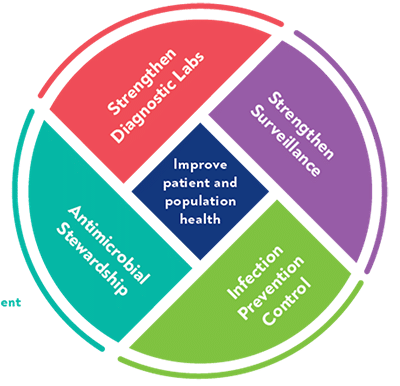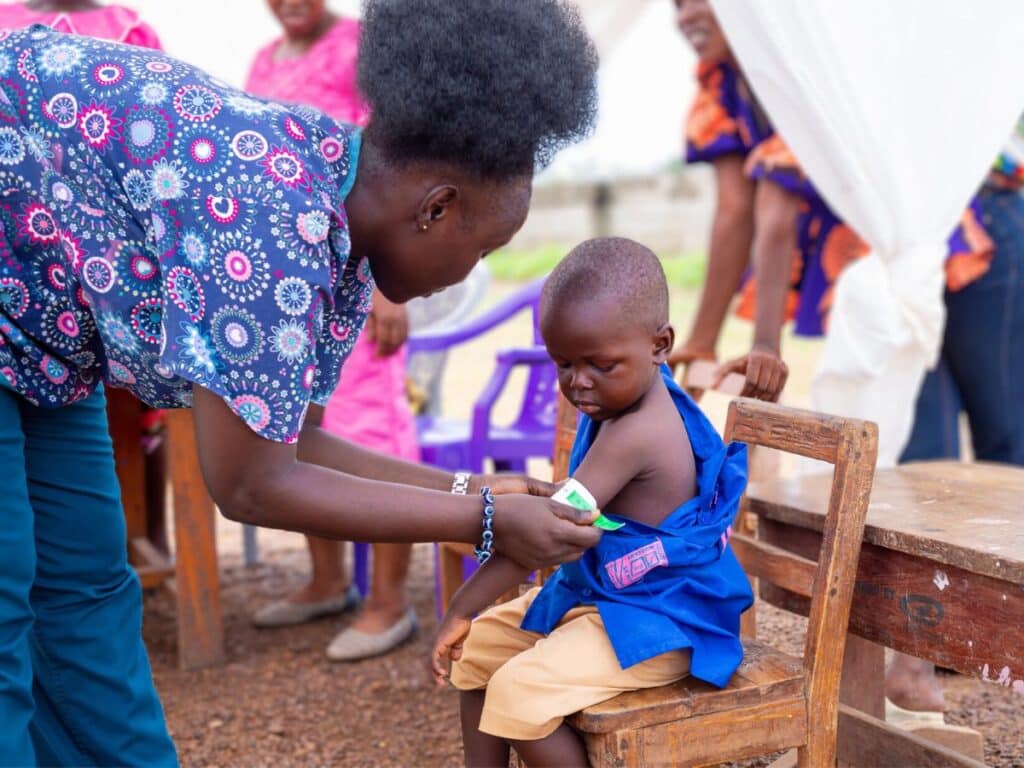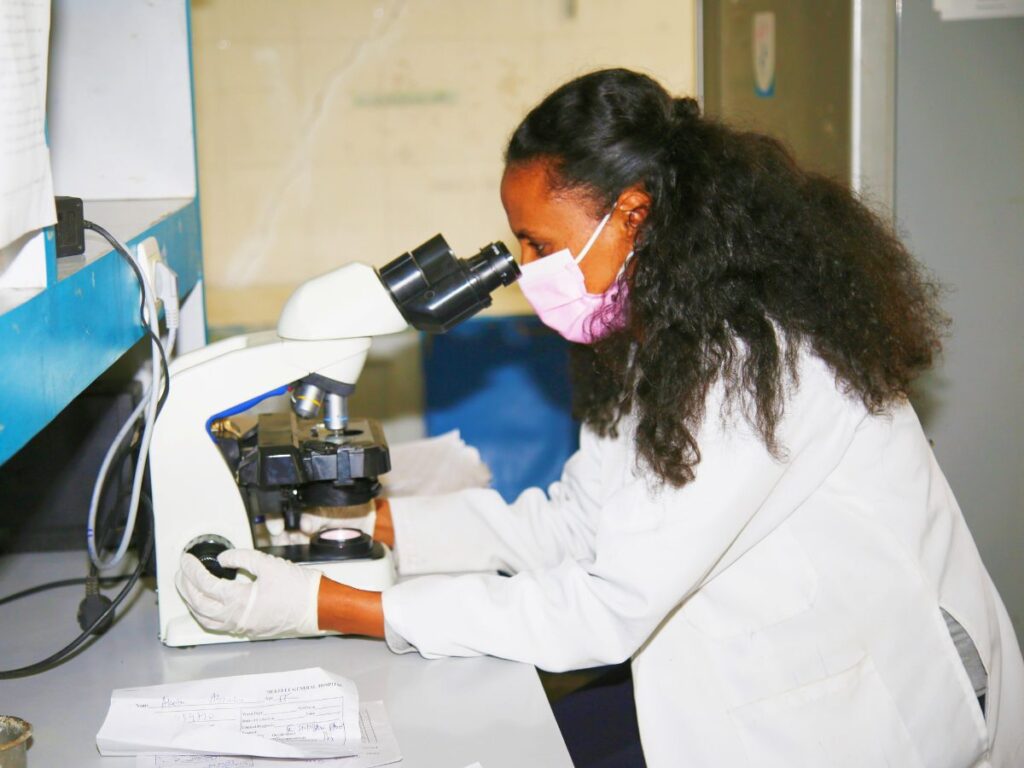AMR
Antimicrobial Resistance (AMR)
Antimicrobial Resistance (AMR) is the ability of microorganisms to persist or grow in the presence of drugs designed to inhibit or kill them. These drugs – penicillin is a well-known example – are called antimicrobials and are used to treat infectious diseases caused by microorganisms such as bacteria, fungi, viruses and protozoan parasites. Antimicrobial resistance is a significant global health priority and has been classified by the World Health Organization as a top-ten threat to global public health. AMR threatens the effectiveness of successful treatments for infections and has ramifications at the local, national, regional and global levels. Resistance to antimicrobial drugs is happening in all parts of the world for a broad range of microorganisms with an increasing prevalence that threatens human and animal health in low and middle-income countries. AMR frequently occurs in microorganisms that are likely to be transmitted in the community such as those that cause pneumonia, diarrheal diseases, HIV, tuberculosis, typhoid fever, sexually transmitted diseases, and malaria. Resistance to antimicrobial agents renders drugs for these illnesses ineffective, and it is a major global threat to human and animal health.

Anchored in science and evidence, ICAP focuses on the following strategies to combat AMR:
- Laboratory strengthening: improving diagnostics for effective detection and response to AMR.
- Surveillance system: a standardized approach to the collection, analysis, and sharing of national AMR data.
- Antimicrobial stewardship: ensuring appropriate use of drugs
- Infection Prevention and Control (IPC): preventing the transmission of AMR organisms
ICAP has more than 15 years of experience providing transformative solutions to effectively prevent, detect, respond to, and control infectious disease health threats, including AMR and health care-associated infections. Working closely with host country governments at every health system level, ICAP addresses challenges in AMR, surveillance, health information systems and surveillance, lab and pharmacy services, infection prevention and control, supply chains, clinical and community services, health governance, human resources, health financing, infrastructure, and health systems strengthening.
Notably, ICAP has:
- Provided support to combat AMR in Thailand, Kenya, DRC, Eswatini, including building capacity on training and establishing surveillance systems
- Provided support to develop robust and sustainable national laboratory systems in 15 countries, including providing technical and logistical support to more than 2,100 laboratories worldwide
- Provided surveillance support in 16 countries to strengthen health system capacity to detect and quickly respond to public health threats
- Supported health workforce development in 18 countries to ensure capacity to address current and future health threats, including supporting the training of more than 194,000 health workers, including the pre-service training of more than 17,000 health workers and the in-service training of more than 176,000 health workers
- Supported the strengthening of infection prevention and control programs in more than 20 countries, especially during outbreaks of Ebola and amid the COVID-19 pandemic






